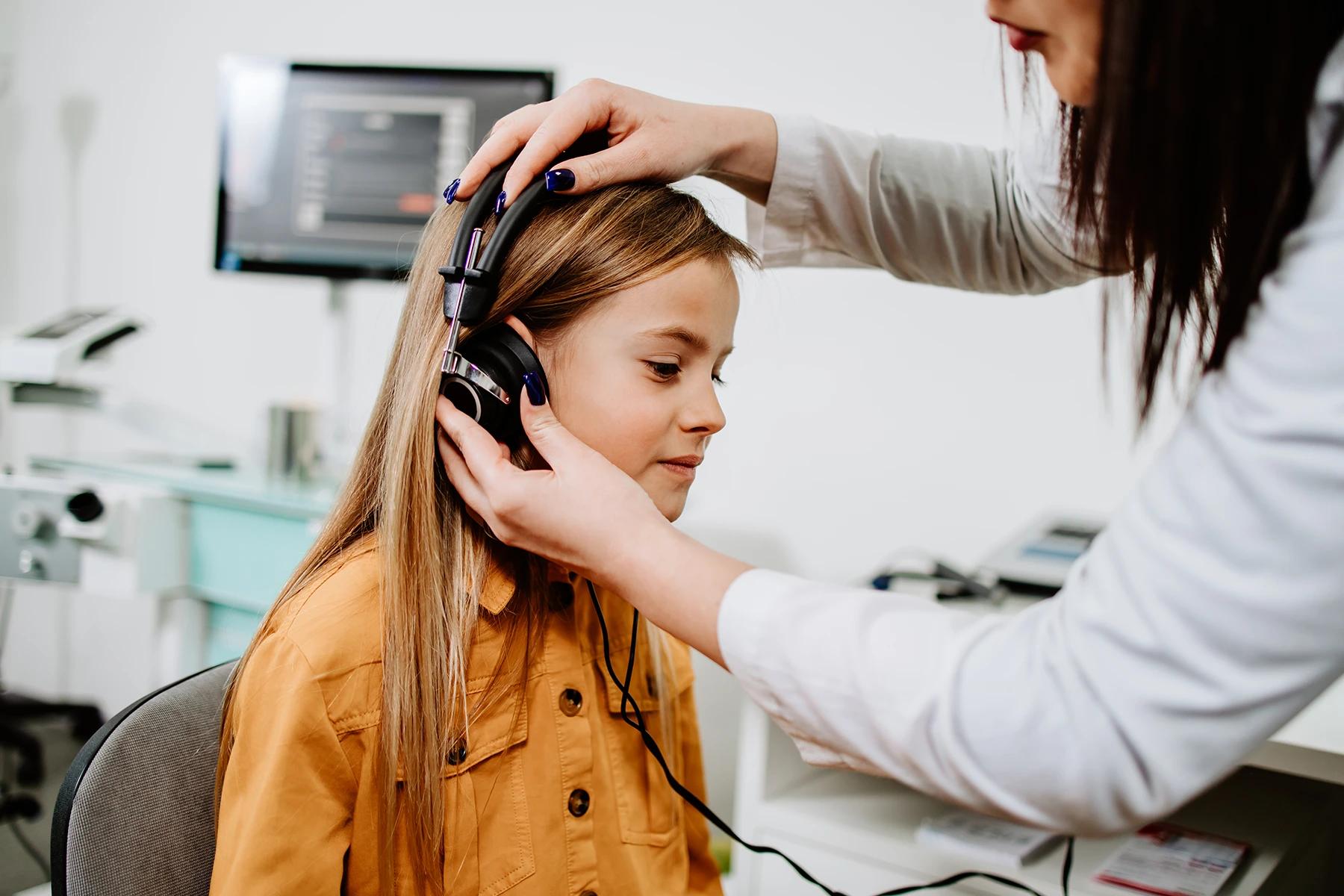Listen Up: Hearing Loss Can Happen at Any Age

An audiologist discusses the impact of noise on hearing, aging, and overall health.
If there’s one message Hillary Snapp, AuD, Ph.D., wants people to hear, it’s that you are never too young to protect your hearing.
“Protect yourself from excessive noise early on. Your hearing may seem normal, but actual structural changes in the hearing organ can happen early,” says Dr. Snapp, chief of audiology at the University of Miami Ear Institute, part of the University of Miami Health System. Chronic noise exposure is toxic to the ear; not only can it lead to an earlier onset of hearing loss, but it can also cause ringing in the ears.
As this 2022 study stated, noise impact research is relatively new, but understanding your risks and ways to protect yourself is key.
Loud and continuous noise exposure doesn’t just affect hearing. Dr. Snapp and scientists at UHealth evaluate the adverse effects of noise on firefighters. They found early changes in the auditory system and in the balance system.
“Research has also shown that noise can activate the stress response, which impacts heart health, disturbs sleep, affects memory and concentration and the ability to regulate emotions,” Dr. Snapp says.
No matter your age, exposure to high noise levels increases the risk of developing hearing loss. It’s important to understand that there is an interaction between exposure to excessive noise and the aging process.
“Chronic or repeated noise exposure can accelerate the aging process of the auditory system, leading to earlier onset of hearing loss,” Dr. Snapp says.
Are you exposed to loud or continuous sounds?
First responders, construction, and landscape workers top the list of noisy professions. No surprise there, but employees of restaurants, bars, and clubs are also at risk. Some classroom situations put teachers in this category, too.
Even if you live and work in relatively quiet environments, loud concerts and sporting events, operating a leaf blower, lawn mower, pressure washer or loud vacuum cleaner can impact your hearing.
“The louder it is, the less time you can be exposed,” Dr. Snapp says, adding, “Be aware of noticeably loud activities. If it hurts your ears, if you have to shout to be heard, or if you experience muffled or decreased hearing or ringing in your ears, it’s too loud.”
In situations or places with high noise levels, Dr. Snapp recommends:
- Limiting your exposure to the loud sounds; give your ears a break by moving to quieter spaces
- Wearing hearing protection such as earplugs or noise-canceling headphones
- Stepping a few feet away from the noise – moving away from the source decreases the loudness
- Turning down the volume when possible
Unfortunately, foam earplugs aren’t always practical.
Either they don’t fit properly or muffle sounds to the point where you can’t communicate with people around you.
There are other options, however.
Earplugs with filters block out excessive noise, allowing softer sounds and speech to be heard.
“They are affordable and available online. Audiologists also make earplugs with filters that are custom-fitted to your ear. They are reusable and available in all different sizes,” Dr. Snapp says.
She takes her own custom earplugs wherever she goes; they fit in a small carrying case attached to her key chain.
Although AirPods are ubiquitous, Dr. Snapp says it’s important that you use them correctly. “Most have built-in features to limit volume; even so, don’t listen at full volume and take breaks. If the volume is too loud for too long, there is a risk of noise-induced hearing loss.
Add hearing tests to your annual checkup.
If you can’t remember when you had a hearing test, it’s been too long.
“Most adults don’t receive a hearing screening as part of their general medical care, and most people aren’t good at identifying their own hearing loss. Hearing screenings for children are common in pediatrics; we should make hearing tests part of our annual health screening,” Dr. Snapp says. Audiologists are experts at evaluating hearing and balance; ask your primary care provider for a referral.
There’s no time like the present to treat your hearing loss.
Although many people postpone getting a hearing aid, Dr. Snapp believes, “The earlier you do something about it, the better. There is increasing evidence that individuals with untreated hearing loss are at increased risk for cognitive decline and social isolation. We also find that the longer a hearing loss is present, the more challenging it can be for a patient to adjust to and accept a hearing aid.” Working closely with an audiologist, wearing the device daily, and being patient with the process helps.
You might be in the prime of life, and hearing loss is not a concern. Protecting your hearing now, says Dr. Snapp, not only improves your health today, it will also improve your quality of life as you age.
“Noise induced hearing loss is preventable. Take action to protect your hearing health,” Dr. Snapp says.
To schedule an appointment with an expert at the UHealth Ear Institute, call 305-243-3564.
Nancy Moreland is a regular contributor to the UHealth Collective. She has written for several major health care systems and the Centers for Disease Control and Prevention. Her writing also appears in the Chicago Tribune and U.S. News & World Report.
Tags: Dr. Hillary Snapp, ear canal, Noise pollution, otolaryngology in South Florida, permanent hearing loss
